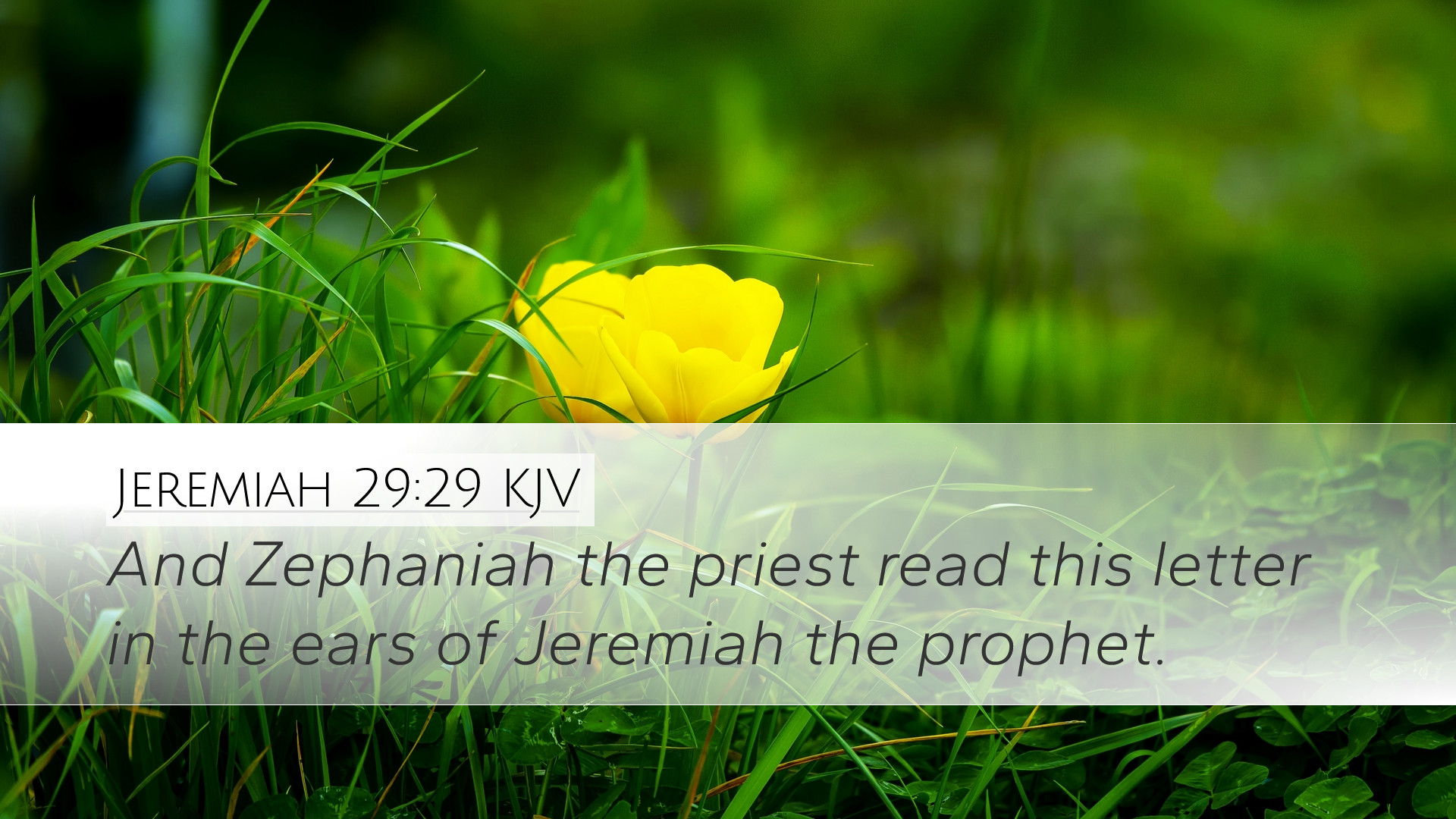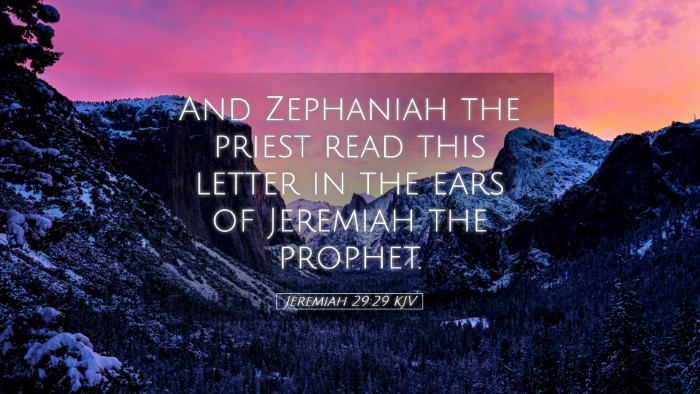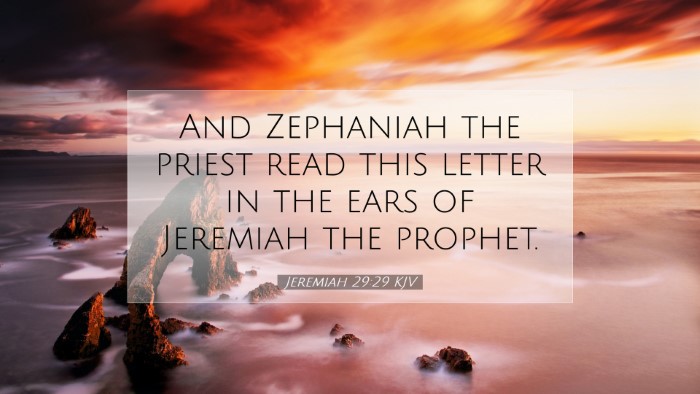Commentary on Jeremiah 29:29
Verse Reference: Jeremiah 29:29 - "And Zephaniah the priest read this letter in the ears of Jeremiah the prophet."
Background and Context
The book of Jeremiah is a profound collection of prophecies addressing the nation of Judah during a time of impending judgment due to their disobedience to God. This specific verse occurs within the context of a letter sent from the prophet Jeremiah to the exiles in Babylon, encouraging them to remain steadfast in their faith and hope in God's ultimate plan for restoration.
The letter of Jeremiah is significant as it communicates God’s directives in the face of displacement and despair, offering wisdom for navigating the complexities of faith in exile.
Insights from Public Domain Commentaries
Matthew Henry's Commentary
Matthew Henry emphasizes the importance of the prophetic ministry during this period. He notes that the reading of the letter by Zephaniah the priest signifies the transmission of divine guidance to the people of Judah. Henry suggests that the act of reading serves as a reminder of God’s sovereignty and His care for those in exile. The clarity and authority with which the letter is delivered help the people understand their current predicament and God’s plans for their future.
Henry further points out that this interaction underscores the continuity of prophetic revelation—the faithful relay of God’s words through His appointed servants, reminding modern believers of the necessity and importance of hearing and following God’s word.
Albert Barnes' Notes
Albert Barnes provides additional depth by focusing on the content of Jeremiah’s letter in chapter 29. He highlights God’s call to the exiles to build homes, plant gardens, and seek the peace of the city where they are sent. Barnes interprets this as an exhortation to engage actively with the surrounding culture while maintaining their identity as God’s people.
Furthermore, Barnes elaborates on the promise that God has a future and a hope for His people, emphasizing the theological theme of restoration. He underscores that despite their current sufferings, God’s plans are redemptive and aimed at a full restoration of His people to their homeland and relationship with Him.
Adam Clarke's Commentary
Adam Clarke provides a scholarly analysis that sheds light on the historical and theological implications of the verse. He reflects on the role of the priest as an intermediary and the significance of reading the prophetic message aloud to the people. Clarke notes that this act signifies not merely the communication of information but the instillation of hope and encouragement amidst despair.
Clarke stresses the pivotal idea that divine messages must permeate the lives of the hearers; they must not remain abstract concepts but must impact the order and conduct of daily life. He argues that understanding God’s word is crucial for the believer’s hope, especially in times of distress.
Theological Themes
- God's Sovereignty: Each commentator resonates with the theme of God’s sovereign control over history and His people. The unfolding events in Judah are part of a larger divine narrative.
- Hope and Restoration: Central to the letter is a message of hope, emphasizing that God’s plans, while often inscrutable in the moment, lead to restoration and blessing.
- Faithfulness in Exile: The exiles are instructed to maintain their faith and integrate with their surroundings while waiting for God's deliverance, illustrating a model of faithful living in a foreign context.
Application for Today
This passage holds numerous lessons for pastors, students, and theologians today. The reading of God's word must always be central in the life of the church, fostering a community deeply rooted in scripture. Just as the exiles were reminded of God’s plans, contemporary believers are called to nourish their faith even during times of uncertainty.
The exhortation to build and cultivate in Babylon carries implications for how believers engage with society. Christians are reminded to be active participants in their communities, exemplifying the love and grace of God in all endeavors.
Finally, the overarching narrative illustrates that God’s timing and plans are perfect. When situations seem dire, remembering God’s past faithfulness can cultivate hope for a better future. This encourages believers to trust Him wholly as they navigate the complexities of life.
Conclusion
Jeremiah 29:29 serves as a pivotal reminder of the importance of prophetic ministry and the necessity of faith amidst exile. The insights drawn from Matthew Henry, Albert Barnes, and Adam Clarke offer a rich understanding that enhances the spiritual depth of this scripture for educators, pastors, and scholars alike. The call to remain engaged, hopeful, and faithful in the face of uncertainty is as relevant today as it was in the days of Jeremiah.


